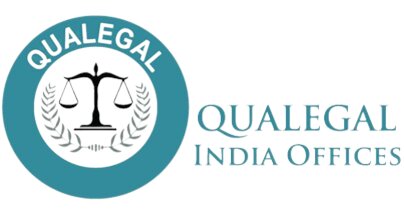Best Environmental Law & Compliance Lawyers in New Delhi
Share your needs with us, get contacted by law firms.
Free. Takes 2 min.
List of the best lawyers in New Delhi, India
About Environment Law in New Delhi, India
Environment law in New Delhi, India, is framed within a complex structure of local, national, and international statutes. Given New Delhi's status as a dense urban area, environmental law plays a crucial role in managing urban pollution, protecting biodiversity, and ensuring sustainable development. The city faces challenges associated with air and water pollution, waste management, and the conservation of green spaces. Legislation like the Environment Protection Act, 1986, the Air (Prevention and Control of Pollution) Act, 1981, and the Water (Prevention and Control of Pollution) Act, 1974, form the backbone of environmental regulation in the region.
Why You May Need a Lawyer
Individuals, businesses, and organizations in New Delhi might require legal assistance for various environmental matters. Some common scenarios include: compliance with environmental regulations, resolving disputes over pollution or environmental damage, understanding the legal implications of developmental projects, navigating permits and licenses for construction or industrial activities, and defending against environmental law violations. Legal expertise is invaluable in interpreting the complex and often evolving landscape of environmental regulations.
Local Laws Overview
Key local laws relevant to the environment in New Delhi focus on pollution control, conservation, and waste management. The Delhi Pollution Control Committee (DPCC) is a local body responsible for implementing environmental regulations within the city. The National Green Tribunal (NGT) also plays a significant role in adjudicating environmental disputes. Key regulations include restrictions on vehicular emissions, stringent norms for industrial waste disposal, and legal mandates for maintaining green buffers in urban planning. Restrictions on the use of plastic and mandates for rainwater harvesting in new buildings are part of efforts to tackle environmental challenges.
Frequently Asked Questions
What are the major environmental concerns in New Delhi?
The primary environmental challenges in New Delhi include severe air pollution, water pollution from industrial and residential waste, inadequate waste management infrastructure, and loss of green cover due to urban expansion.
How does the government enforce environmental laws in New Delhi?
Environmental laws are enforced through a combination of regulatory bodies such as the DPCC, NGT, and various departments within the Ministry of Environment, Forest and Climate Change. They monitor compliance, issue permits, and impose penalties for violations.
What is the role of the National Green Tribunal (NGT) in environmental law?
The NGT is a specialized body equipped with the necessary expertise to handle environmental disputes involving multi-disciplinary issues. It ensures the expeditious disposal of cases related to environmental protection and conservation of forests and other natural resources.
Can citizens play a role in enforcing environmental laws in New Delhi?
Yes, citizens can engage in environmental protection by reporting violations to authorities, participating in public interest litigations, and supporting initiatives aimed at sustainable urban development.
How do businesses ensure compliance with environmental laws in New Delhi?
Businesses must adhere to environmental standards as set out in local and national laws. This often involves obtaining environmental clearances, conducting impact assessments, and regularly monitoring emissions and waste.
What are the penalties for violating environmental laws?
Penalties can range from fines and compensation to mandatory remediation efforts or even closure of operations in cases of severe violations. The NGT and DPCC are primarily responsible for determining and enforcing these penalties.
What is the process for obtaining an environmental clearance for a project?
Environmental clearance typically involves submitting an application detailing the project, conducting an environmental impact assessment, and undergoing a review process by the regulatory authorities.
Is public participation allowed in environmental decision-making?
Yes, public participation is an essential component of the environmental impact assessment process. Public hearings allow stakeholders to express potential concerns regarding proposed projects.
What measures are in place to address air pollution in New Delhi?
Measures include vehicular emission standards, promotion of electric vehicles, restrictions on construction dust, periodic bans on firecrackers, and planting trees for carbon sequestration.
How can one challenge an industrial project that seems harmful to the environment?
To challenge a project, individuals or groups can file complaints with regulatory bodies, seek recourse in the NGT, or participate in public hearings to voice objections during the project's approval process.
Additional Resources
For further assistance, individuals can reach out to the Delhi Pollution Control Committee (DPCC), the National Green Tribunal (NGT), and organizations like the Centre for Science and Environment (CSE). These bodies offer information, support, and avenues for addressing environmental concerns.
Next Steps
If you require legal assistance in environmental matters, consider contacting a lawyer with expertise in environmental law. Research thoroughly, or consult law directories or bar associations to find qualified professionals. It's also beneficial to gather all pertinent documentation related to your case and be prepared to discuss specific details with your legal advisor.
Lawzana helps you find the best lawyers and law firms in New Delhi through a curated and pre-screened list of qualified legal professionals. Our platform offers rankings and detailed profiles of attorneys and law firms, allowing you to compare based on practice areas, including Environmental Law & Compliance, experience, and client feedback.
Each profile includes a description of the firm's areas of practice, client reviews, team members and partners, year of establishment, spoken languages, office locations, contact information, social media presence, and any published articles or resources. Most firms on our platform speak English and are experienced in both local and international legal matters.
Get a quote from top-rated law firms in New Delhi, India — quickly, securely, and without unnecessary hassle.
Disclaimer:
The information provided on this page is for general informational purposes only and does not constitute legal advice. While we strive to ensure the accuracy and relevance of the content, legal information may change over time, and interpretations of the law can vary. You should always consult with a qualified legal professional for advice specific to your situation.
We disclaim all liability for actions taken or not taken based on the content of this page. If you believe any information is incorrect or outdated, please contact us, and we will review and update it where appropriate.












